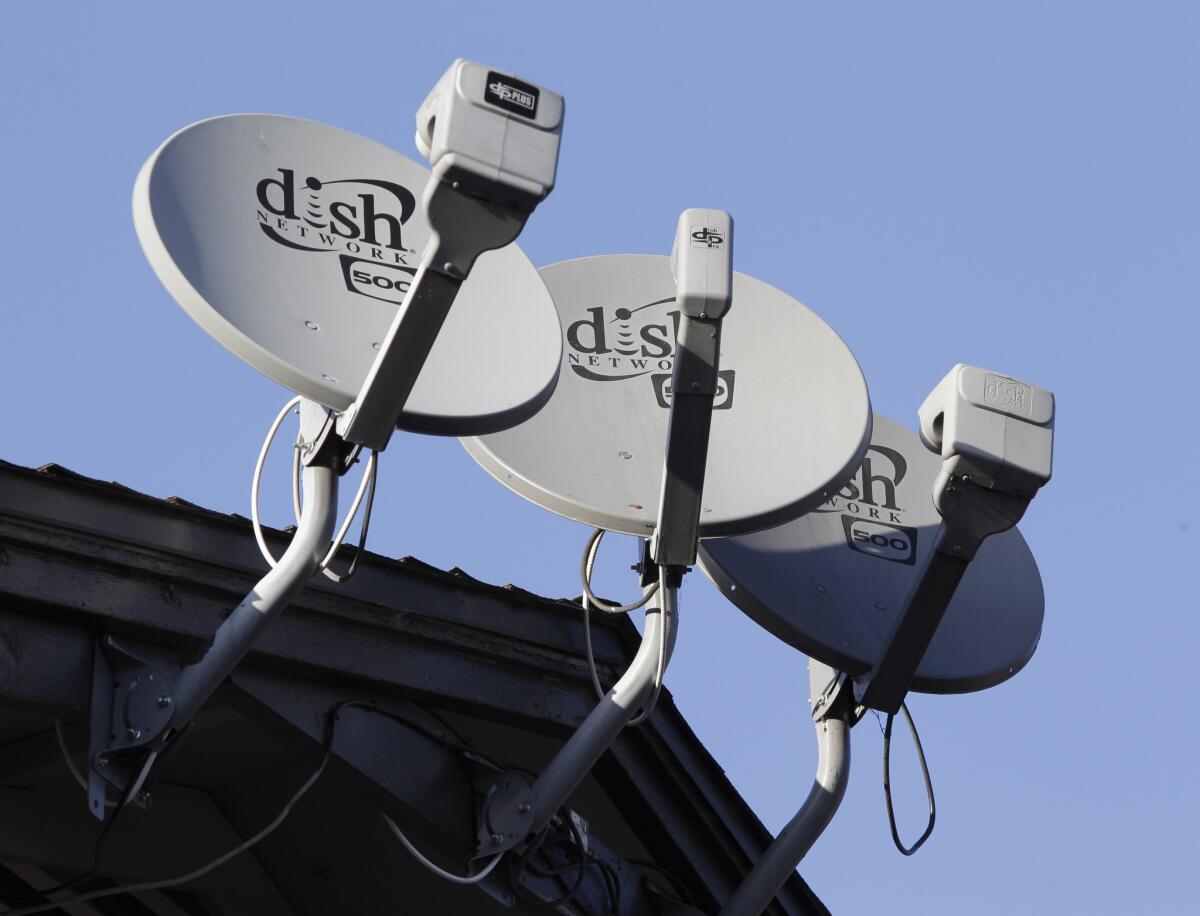Broadband battle takes to the skies as coalition targets SpaceX satellites

The increased demand for broadband access is setting up a fight for the airwaves between entrepreneurs Charlie Ergen and Elon Musk.
A coalition of mobile broadband providers, including the Ergen-led Dish Network, is asking the Federal Communications Commission to expand its ongoing rule-making proceeding to include new uses for airwaves previously reserved for satellites.
That range of airwaves is being targeted by companies such as Musk’s SpaceX and Arlington, Va.-based OneWeb, both of which are planning to launch constellations of hundreds or even thousands of satellites into orbit to provide low-cost Internet access, especially in more remote parts of the world.
In an FCC filing, the Multichannel Video Distribution and Data Services 5G Coalition said reserving a certain part of the spectrum for low-orbiting satellites could jeopardize plans for next-generation, or 5G, services because of interference.
It also questioned whether the proposed satellite constellations will materialize. Similar plans in the 1990s for swarms of satellites ended up falling far short of expectations.
In a filing, the coalition said there was “simply no basis to jeopardize” deployment of 5G services to give additional spectrum to a “speculative” service. It added that the satellite service already has access to “ample spectrum for future operations.”
In its own FCC filing, Hawthorne-based SpaceX said the coalition’s petition came at “precisely the wrong time.”
“Investment and development is at an all-time high and operators are on the precipice of bringing revolutionary broadband access to market,” SpaceX said. Satellite service provider Intelsat, which is an investor in OneWeb, also submitted an FCC filing opposing the coalition’s plan.
The FCC wants to make more airwaves available for mobile Internet and other innovative wireless services. Agency officials are hoping technological advances soon will make airwaves in what’s known as the “spectrum frontier” – a far end of the spectrum that has limited uses – available for 5G services.
“In the competitive mobile marketplace, standing still means falling behind,” FCC Chairman Tom Wheeler said last fall when the FCC launched a formal rule-making process. “We need to be looking to the future of wireless. We need to be looking at 5G.”
In October, the FCC proposed rules for new uses for a slice of those frontier airwaves that does not include those in the Ku-band, which is reserved for fixed satellite services.
For more business news, follow me @smasunaga
More to Read
Inside the business of entertainment
The Wide Shot brings you news, analysis and insights on everything from streaming wars to production — and what it all means for the future.
You may occasionally receive promotional content from the Los Angeles Times.











